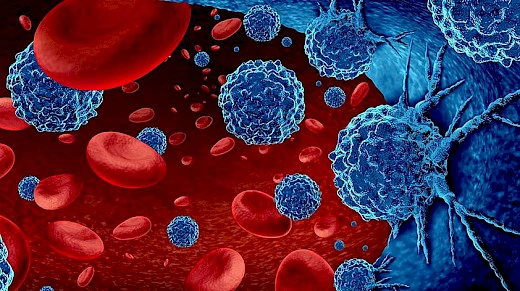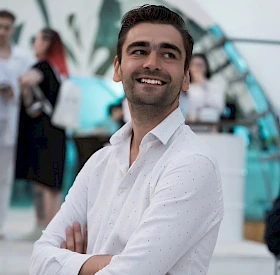Study led by Cypriot professor gives hope in the fight against leukemia

Cypriot professor Grigoris Vasiliou led an international study that shed light on the causes of age-related predisposition to clonal hematopoiesis and a range of blood disorders. Scientists found that shortening of telomeres — protective “caps” at the ends of chromosomes — plays a key role in the development of mutations associated with blood cancers.
The study results were published in Nature Genetics. This discovery helps explain a long-standing biological mystery and opens the way for developing targeted approaches for the prevention and treatment of serious conditions such as acute leukemias and myelodysplastic syndromes.
Clonal hematopoiesis is a process in which mutated blood-forming cells gradually proliferate, creating a dominant clone. It often precedes the development of malignancies, including myelodysplastic syndromes and acute myeloid leukemia.
By analyzing nearly half a million participants in the UK Biobank, researchers discovered that individuals with genetically short telomeres are more likely to develop mutations in genes responsible for transcription (such as SF3B1, SRSF2, U2AF1) as well as in PPM1D and TERT. These mutations give aging cells a survival advantage, compensating for telomere shortening. Over time, however, this can lead to further mutation spread and serious blood diseases.
According to Professor Vasiliou, telomere shortening drives cellular selection in aging blood. Mutations associated with transcription factors seemingly “preserve” old cells, preventing their natural functional decline. Yet this apparent advantage can become a factor triggering malignant transformation.
This discovery is considered an important step in oncohematology, as it identifies a new therapeutic target — intervention in telomere stabilization mechanisms. Future drugs targeting these processes may become effective tools for preventing and treating blood cancers in elderly patients.
As Dr. Matthew MacLoughlin, co-author of the study, noted, “This research demonstrates the lifelong impact of telomere dynamics on blood health and cancer risk. Understanding this relationship provides a powerful new strategy for combating and preventing various forms of leukemia.”
You may also be interested in:
- 20 bullets found in the toilets of Larnaca General Hospital
- Car burned in Nicosia at night: police suspect arson
- Health Insurance Organization announces changes in medicine prices
- A three-vehicle accident occurred on the Nicosia–Limassol highway
- Ammunition found at Larnaca Hospital: police investigate the incident


